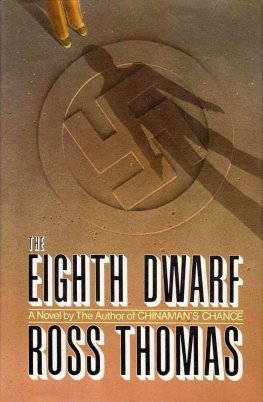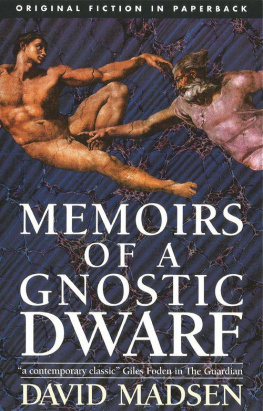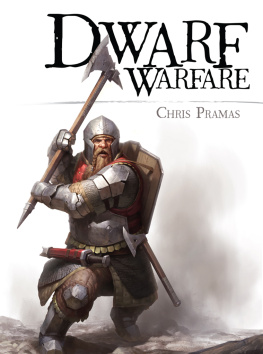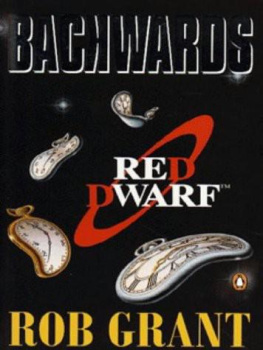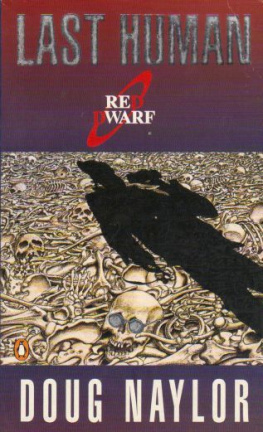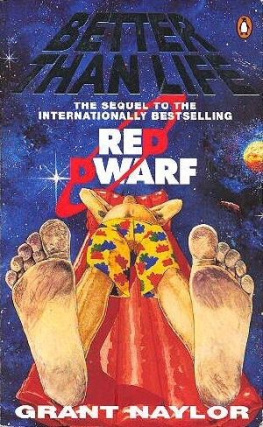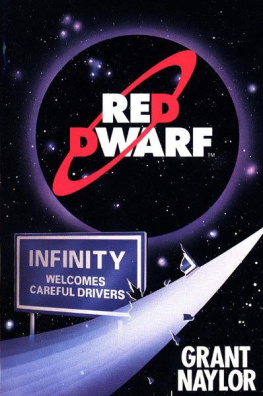I am twenty-six inches tall, shapely and well proportioned, my head perhaps a trifle too large. My hair is not black like the others, but reddish, very stiff and thick, drawn back from the temples and the broad but not especially lofty brow. My face is beardless, but otherwise just like that of other men. My eyebrows meet. My bodily strength is considerable, particularly if I am annoyed. When the wrestling match was arranged between Jehoshaphat and myself I forced him onto his back after twenty minutes and strangled him. Since then I have been the only dwarf at this court.
Most dwarfs are buffoons. They have to make jokes and play trick to make their masters and the guests laugh. I have never demeaned myself to anything like that. Nobody has even suggested that I should. My very appearance forbids such a use of me. My cast of countenance is unsuited to ridiculous pranks. And I never laugh. I am no buffoon. I am a dwarf and nothing but a dwarf.
On the other hand I have a sharp tongue which may occasionally give pleasure to some of those around me. That is not the same thing as being their buffoon.
I mentioned that my face was exactly like that of other men. That is not quite accurate, for it is very lined, covered with wrinkles. I do not look upon this as a blemish. I am made that way and I cannot help it if others are not. It shows me as I really am, unbeautified and undistorted. Maybe it was not meant to be like that, but that is exactly as I want to look.
The wrinkles make me look very old. I am not, but I have heard tell that we dwarfs are descended from a race older than that which now populates the world, and therefore we are old as soon as we are born. I do not know if this is true, but in that case we must be the original beings. I have nothing against belonging to a different race from the present one and showing it on my person.
I think that the others faces are absolutely expressionless.
My masters are very gracious to me, particularly the Prince, who is a great and powerful man, a man of great schemes, and one who knows how to put them into execution. He is a man of action, but at the same time a scholar who finds time for everything and likes to discuss all manner of subjects under heaven and on earth. He conceals his true aims by talking about something else.
It may seem unnecessary to be so preoccupied by everything (always supposing he really is), but perhaps it has to be, perhaps as a prince he is obliged to comprehend everything. He gives the impression of being able to understand and master anything, or at least of wishing to do so. Undeniably he is an imposing personality, the only one I have ever known whom I do not despise.
He is very treacherous.
I am well acquainted with my lord, but I do not profess to know him inside and out. His is a complicated nature which it is not easy to understand. It would be wrong to say that he is full of hidden riddlesnot at allbut somehow or other he is difficult to know. I do not quite understand him myself, and I do not really know why I follow him with such doglike devotion. On the other hand he does not understand me either.
He does not impress me as he does the others, but I like to be in the service of a master who is so impressive. I will not deny that he is a great man; but nobody is great to his dwarf.
I follow him constantly, like a shadow.
Princess Teodora is very dependent on me. I carry her secret in my heart. I have never breathed a word of it, and if they stretched me on the rack in the torture chamber with all its horrors, even than I should never betray anything. Why? I do not know. I hate her and I should like to see her dead, burning in the fires cf hell with her legs astraddle and the flames licking her foul belly. I hate her lascivious mode of life, the lewd missives which she makes me carry to her lovers, her words of love which burn against my heart. But I betray nothing. I am always risking my life for her.
When she calls me into her chamber and whis-peringly confides her messages to me, hiding the love letters under my jerkin, then I shiver all over and the blood rushes to my head. But she notices nothing, she never gives a thought to the fact that my life is at stake. Not her life, but mine! She merely smiles her scarcely perceptible, absent-minded smile, and lets me go on my dangerous mission. My share in her secret life counts as nothing with her. But she trusts me.
I hate all her lovers. I have wanted to fling myself upon every one of them and pierce them with my dagger to see their blood flow. Most of all I hate Don Riccardo; she has had him for several years now, and it looks as though she never intended to get rid of him. I find him repulsive.
Sometimes she lets me come into her chamber before she has risen, and exposes herself in all her shamelessness. She is no longer young, her breasts sag as she lies in the bed, playing with her jewels and taking them out of the casket proffered by her handmaid. I cannot understand how anyone can love her. She has nothing which a man could find desirable. One can only see that once upon a time she was utterly beautiful.
She asks me which jewels I think she should wear today. She likes asking me that. She lets them fall slowly between her narrow fingers and stretches herself indolently under the heavy silken coverlet. She is a whore. A whore in the bed of a magnificent prince. Her whole life is love which, like her jewels, she lets trickle through her fingers, while she lies smiling vaguely as she sees it run away between them.
At such moment she is often sad or pretends to be. With a wistful gesture she twines a gold chain around her neck and lets its great ruby glow between her breasts; then she asks if I think she ought to wear that chain. The scent of her around her bed makes me retch. I hate her, I want to see her burning in the fires of hell. But I answer that I think she ought to choose that particular one, and she sends me a grateful glance as though I had partaken of her grief and brought her rueful consolation.
Sometimes she calls me her only friend. Once she asked me if I loved her.
What about the Prince? Does he suspect nothing? Or maybe everything?
It looks as though the matter of her secret life did not exist for him. But one cannot tell, with him one can never be quite sure of anything. He consorts with her in the daytime, and it seems as though he himself were daytime in person, for he is so utterly irradiated with the light of day. It is odd that such a person should be beyond my comprehensionjust he! But perhaps that is because I am his dwarf, and againhe does not understand me either! I understand the Princess better than I do him, and that is not so remarkable, for after all I hate her. It is difficult to understand those whom one does not hate, for then one is unarmed, one has nothing with which to penetrate into their being.
What is his relationship to the Princess? Is he too her lover? Perhaps her only real lover? And is that why he seems to be so unmoved by all that she does elsewhere? I am upsetbut not he?
I do not understand this impassive man. His superiority is something which irritates me unceasingly, causing me a discomfort of which I cannot be rid. I want him to be like me.
The court is abuzz with strange people. Wise men who sit with their heads in their hands trying to discover the meaning of life; scholars who believe that they can follow the path of the stars with their aged bleary eyes, who even believe that the fate of mankind is mirrored up there in them. Gallows-birds and adventurers who read their languishing verses to the ladies of the court, and then are found spewing prone in the gutter at dawn (one was stabbed to death as he lay there, and I recall that another was thrashed because he had written a pasquinade against the Cavalire Moroscelli). Loose-living artists who fill the churches with pious images; sculptors and draftsmen who are to build the new cathedrals campanile; dreamers and charlatans of every description. They come and go like the vagabonds they are, but some stay on for a long time as though they belonged here. All abuse the Princes hospitality.
Next page


